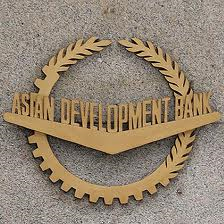 MANILA — The Asian Development Bank last week approved loans and grants worth US$69 million to Cambodia, Laos, and Viet Nam for a community-based initiative to protect more than 1.9 million ha of threatened forests where 170,000 mostly poor people live.
MANILA — The Asian Development Bank last week approved loans and grants worth US$69 million to Cambodia, Laos, and Viet Nam for a community-based initiative to protect more than 1.9 million ha of threatened forests where 170,000 mostly poor people live.
The 32-year loan of $30 million to Viet Nam and grants of $19 million for Cambodia and $20 million for Laos will help the Greater Mekong Subregion (GMS) member nations carry out the GMS Biodiversity Conservation Corridors Project.
It follows a series of successful pilot conservation activities in the countries.
“It marks the first investment to emerge from the pilot phase and provides a model for expanded and sustained local community participation in the management of these vital natural resources,” Pavit Ramachandran, Environment Specialist in ADB’s Southeast Asia Department, said.
The richly diverse forest regions have come under increasing pressure as a result of activities like hydro-power development, road construction, mining, and agriculture. They are also increasingly vulnerable to the extreme weather conditions bought about by climate change.
Restoring these habitats is essential for preserving critical environmental services and safeguarding the livelihoods of poor upland farmers and indigenous communities living in 56 communes and 69 villages in the three countries, an ADB release said.
The project will include planting native trees and other plants to restore habitats in over 19,000ha of degraded forests. It will also raise the capacity of national and provincial agencies and community-level groups to plan and sustainably manage forests while supporting the security of land tenure for poor households and ethnic minority groups dependent on forest resources.
Women will be an integral part of the workers carrying out the restoration, while more than 4,770 households and 4,000 farmers will receive cash and technical support for livelihood enhancements.
“The pilot activities have shown that coupling conservation with direct livelihood improvements is feasible, and a decentralised community-oriented approach to resource management offers the best chance of success,” Ramachandran said.